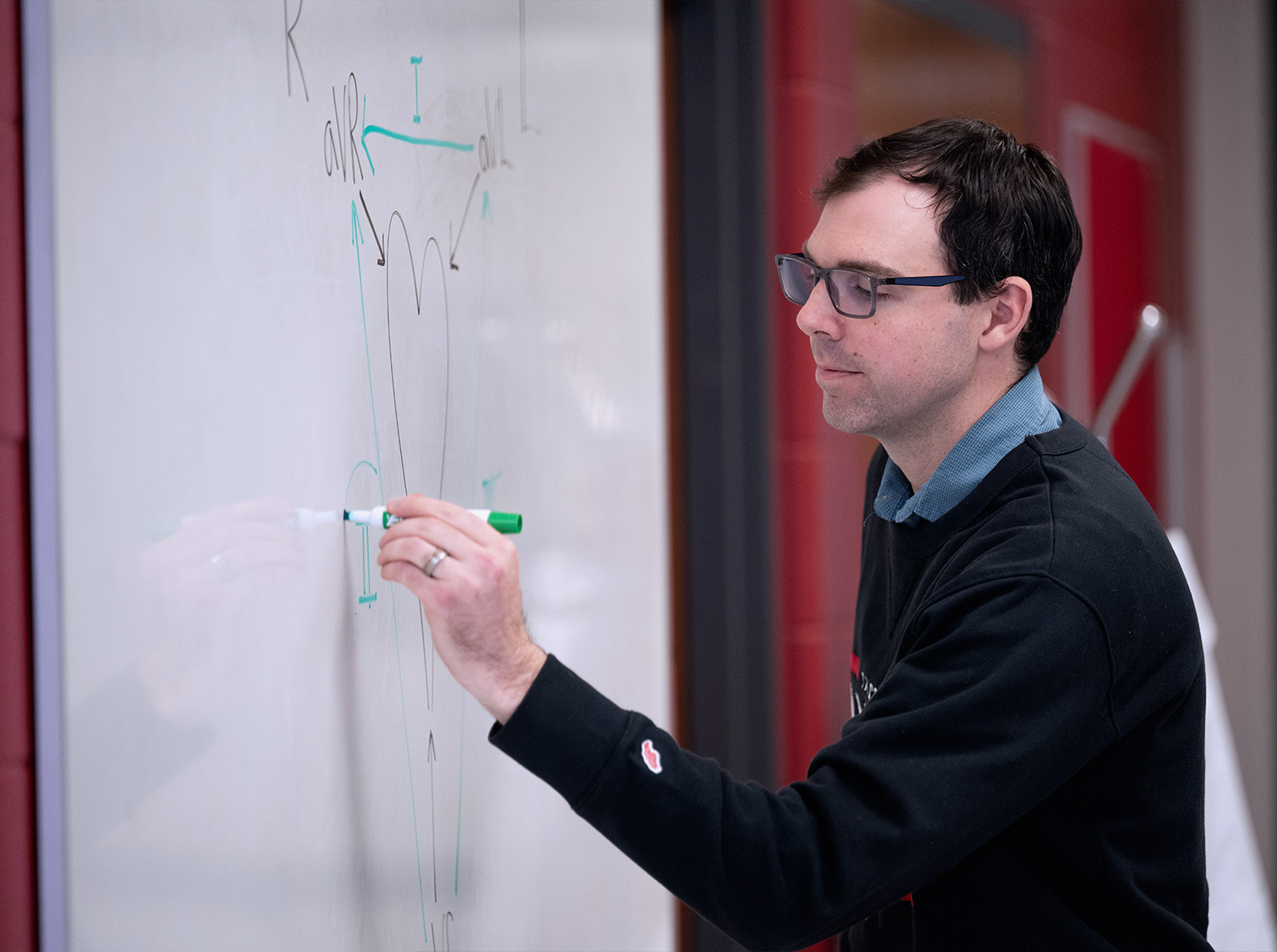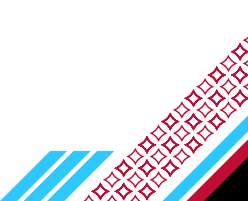Understanding the ADA, Accommodations and Disability
Faculty are not expected to be experts on disabilities. The Disability Resource Center is willing and able to collaborate with faculty in order to ensure that all aspects of the curriculum are welcoming and inclusive of students with disabilities.
A Faculty Notification Letter (FNL) outlines a student's eligible accommodations. If this letter was emailed to you, you'll find that information in DRC Connect: Instructor Access. If a student discloses a disability or previous accommodations, but has not connected with the DRC, please consider recommending they contact our office. Accommodations should not be given to students without first receiving a FNL.

View students enrolled in your courses with accommodations
- Enter your username: w3xxxxxx
- Enter your password: your UWRF/SSO
- Sign the FERPA agreement.
Each semester, this access will allow you to view which students have shared their FNL with you. This letter is emailed from the DRC, not from the student. Within DRC Connect, you'll be able to view student FNLs, not requiring you to find them in your emails.
Please note: a student is not eligible to request accommodations until they share their FNL by email. No accommodation should be given until a student takes that action. Accommodations are not retroactive. It's best practice to wait for a student to make an outward request for an accommodation, rather than assume a request will be made. A student may contact an instructor by email or in person. How a student uses their accommodations in each class can be unpredictable and inconsistent. Students should make their requests in a respectful, timely manner.
Accommodation-Specific Information
Syllabus Statement
Students with disabilities are a protected class under the ADA and have a right to reasonable accommodations. It is strongly recommended by the DRC to create a welcoming and inclusive educational experience for students with disabilities.
Please include the following syllabus statement in all taught courses:
The University of Wisconsin-River Falls welcomes students with disabilities into its educational programs, activities, residential halls and everything else it offers. Those who’ll need academic adjustments or accommodations for a disability should contact the Disability Resource Center, 123 Rodli Hall, 715-425-0740. Decisions to allow adjustments and accommodations are made on the basis of clinical documentation the students provide to sufficiently indicate the nature of their situation. Additional information is found at students.uwrf.edu/drc.
Universal Design
Universal Design refers to the development of buildings, products and teaching methods that eliminate the need to arrange retroactive accommodations. The goal is to develop things in ways that make them automatically accessible to people and students who have disabilities. Typically, these ways of doing things also make them considerably more convenient for everyone.
Universal Design for Learning (UDL) is a research-based framework for designing curriculum goals, methods, materials and assessments that enable all students to independently gain knowledge and skills without relying on the need to arrange common kinds of accommodations for students who have a disability. This is accomplished in the planning process by designing in circumstances that can support learning while reducing barriers to the curriculum.
Resources:
- Universal Design and how it may be applied to the classroom setting (University of Washington)
Lecture Notes Accommodations
Accommodation for lecture notes is provided to students with disabilities which make it very difficult to take notes in a tempo-based lecture. The objective is to provide equal opportunity to effectively study the information that's delivered during lectures.
How does a student with this accommodation receive notes?
The student must first be qualified to receive this accommodation by following the DRC's Academic Accommodation Process.
The student shares their Faculty Notification Letter from the DRC which indicates it can be appropriate to have this kind of accommodation.
The student outwardly requests their lecture notes using DRC Connect. Our office then sends an email to the instructor of the class to find a notetaker for the class.
The professor elects to unilaterally provide personal lecture notes to the student or uses the Note Taker Application link in the email from the DRC to recruit a classmate who will provide copies of lecture notes once they receive this email. Remember: All notetaker requests and applications need to be submitted to the DRC using DRC Connect. Only one notetaker per course is hired.
The application instructions tell the note taker to contact the DRC to receive further direction if they need it. They can also access this notetaker guide for help
See this example guide/email for an example of what you would receive as an instructor from the DRC in this process.
It's important to note that DRC staff cannot effectively monitor the content or quality of the notes being received by the accommodated student. Therefore, the office has assigned the responsibility of monitoring the copies of lecture notes to the student who is supposed to receive them. The student has been told to immediately notify the DRC if there is any concern with the quality or timeliness of this accommodation. A link is provided to the professor to verify the content is accurate.
Alternative Testing
Step-by-step guides on how to:
- Accept Alternative Testing Contracts on DRC Connect
- Upload Exams to DRC Connect Without Direct Link
- Retrieve Completed Exams from DRC Connect
The most common test-taking accommodations are: a specified amount of additional time, a distraction-reduced testing location, questions read out loud by a screen reader, and transcription of students' verbal answers. The objective of testing accommodations is to ensure an equal opportunity to measure the student's knowledge and skills, versus measuring how the disability impacts the test-taking event. The objective is not to raise the potential for success.
Alternative Text
There are essentially two kinds of alternative text accommodations. One is an electronic version (typically a PDF) of a printed material for students with disabilities that significantly prevent the ability to read. The other is a transcript of an audio media for students with disabilities that significantly prevent the ability to hear. The objective is to create equal access and opportunity to effectively study the course material which is presented in written and audio formats. Typically, these kinds of accommodations can't be purchased in ready made versions. The DRC must actually manufacture the accommodations and because of the U.S. Copyright Law, must first seek the publisher's permission. This process can take weeks. Therefore, students are expected to plan ahead and request these kinds of accommodations well in advance.
Routine Text Accommodation Protocols
The student must first be qualified to receive this accommodation by following the DRC's Academic Accommodation Process.
Student receives a Letter of Eligibility from the DRC that indicates it's appropriate to have text accommodations.
Student gives a copy of the letter to the professor soon after registering for a course and asks for either a list of the reading materials and assignments or list of the audio media that will be used.
Student reviews the list to determine what materials will be needed in an accommodated format.
Student fills out and submits an Alternative Text Accommodation Request to the DRC for each material that will be needed in an accommodated format. The DRC and Textbook Services are helpful in supporting the student well in advance when possible.
The DRC contacts the publisher for permission to reformat the material.
After receiving permission, the DRC creates the accommodation. This process can take up to four weeks.
What the DRC Doesn’t Do
The following accommodations will not be provided:
Personal devices such as wheelchairs, hearing aids or glasses.
Personal services such as assistance with eating, toileting or dressing.
Accommodations that would fundamentally alter the nature of a program.
Accommodations which lower or substantially modify academic or program standards.
Accommodations that are unduly burdensome, administratively or financially.
Technology Resources for Course Accessibility
- Equal Access to Software and Information (EASI) provides ten tips for online instructors to make their courses accessible to all students.
- Web with Accessibility in Mind (WebAIM) shows instructors how to create PowerPoints that are accessible to nearly all students.
- TRACE Center at the University of Wisconsin-Madison provides a wide range of information and resources.
- Captioning resources
Disability Resource Center
Monday-Friday, 8 a.m.-4:30 p.m.

